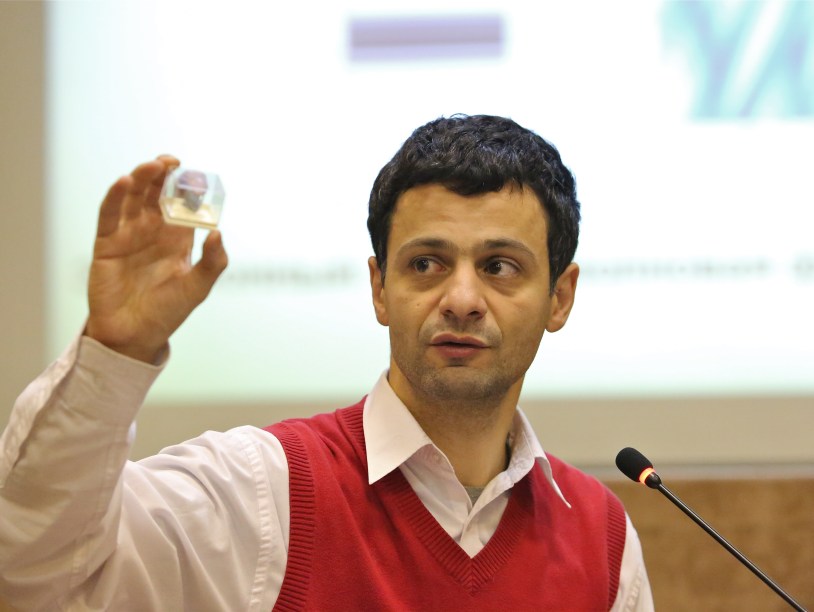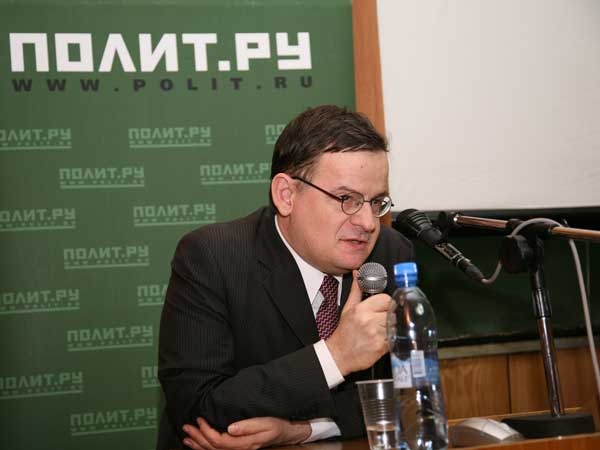Get out of here!
Series of passed and expected dismissals of governors point at Kremlin’s intension to purge ranks of regional officials. It doesn’t concern at the moment real prominent figures, since it is necessary to draw high turnout. Every dismissal is preceded with its specific history though. We counted four main reasons of governors’ discharges.
Whom?
The last year of Putin can become famous with multitude dismissals of governors. Yesterday Vladimir Putin discharged a governor of Sakhalin Ivan Malakhov, the last week the president accepted Novgorod region governor Mikhail Prusak's resignation. It is rumoured that Perm governor Oleg Chirkunov is the next.
The list is not completed. “When a system of governors’ appointment was only introduced, there was no staff reserve, since one had to reassign almost 90 governors. Now only 10 or rather more must be appointed, so that allows regarding them more critically,” reckons an expert of the Institute for Regional Policy Alexei Titkov.
All observers coincide that it is a purge designed to guarantee a calm, quite life and reign of the future Putin’s successor. As Alexander Kynev, director of regional programs at the Foundation for Information Policy Development told in his interview to polit.ru, the retired Prusak was a man of a generation, which had already gone, he belonged to the epoch of Boris Yeltsin. So dismissals of officials of that epoch are quite natural.
The second consideration is that regions, where governors were discharged, had demonstrated during regional elections sizeable remonstrance, for example, in Novgorod the United Russia showed rather modest results. In Sakhalin elections had place before changes in the electoral law though, so the United Russia did not release lists of its candidates. But in this sense attractiveness of the Sakhalin region is questionable, since all the electorate hardly amounts to a half a million.
None of these explanations is irrefragable but the logic of dismissals is quite clear. First, Kremlin can easier arrange with governors that are not in the plan of the purge. We’ve already written about the conception of development of the Far East and the APEC summit. The problem of the Primorye Territory is obvious, the question is who will distribute and expend $6 mln dollars. The Primorye governor Darkin is considered to be a sharp person. Malakhov from the neighbour Sakhalin was dismissed; his own vice-governor Shishkin is accused of taking a bribe of 1.2 mln rubles (that is about $50 000). Darkin must understand that $6 mln will be expended by absolutely other people, for example, ones from St. Petersburg, i.e. recently appointed presidential advisor for APEC summit organization Sergei Ushakov, who has by chance work experience in Leningrad KGB. Or it can be Kamil Iskhakov, the presidential envoy to the Far East.
Another president’s plenipotentiary played his role in the discharge of Novgorod governor. Mikhail Prusak was replaced by a former deputy minister of Agriculture who used to be a deputy minister of Industry who is now the presidential envoy in the Northwestern District Ilya Klebanov. So, those who wants to become a governor should be friends with a president’s envoy.
The second important issue that representatives of the president don’t participate in discharges of governors, that’s decisions of the Federal centre. Sakhalin can serve as a sample. The governor Malakhov and his administration opposed with all their might to Gazprom’s participation in Sakhalin II project. It caused a conflict with Federal Service for Supervising Natural Resources (Rosprirodnadzor): during the confrontation the head of the Sakhalin department of the Service now was dismissed, now wasn’t.
Another is interesting: in the preliminary list of candidates from the United Russia entered the president of “Rosneft” company Sergei Bogdanchikov and, in addition to him, his old companion Nikolai Borisenko, recently quitted his job in Rosneft. So, Rosneft and, perhaps, its Kremlin’s curator Igor Sechin personally, denoted their interest in the region. It would be quite natural, if just Alexander Khoroshaev, a person of Bogdanchikov becomes a governor of Sakhalin.
For what?
As we have already mentioned, there are four main types of reasons of governors’ dismissals.
The first one is a conflict of corporations of the region. According to some information, just the competition conflict between Lukoil and Rosneft caused a replacement of Barinov, the head of the Nenets Autonomous Area.
The second variant is revenge of a federal official or of a businessman. That is the main reason of Malakhov’s discharge; he paid for his position on the Sakhalin II issue. That can also become a motive of supposed dismissal of Nikolai Kiselev, governor of the Arkhangelsk Region, who clashed recently with the shady owner of Arkhangelsk pulp and paper plant Vladimir Krupchak.
The third variant is an advancement, that is, obviously, the most pleasant conclusion of a governor’s career. For example, Yury Trutnev, a former Perm governor, became Natural Resources Minister, Tyumen governor Sergei Sobyanin headed in 2005 the Presidential Executive Office. Partly that can be said about former Saratov governor Dmitry Ayatskov (he was to become Russian Ambassador in Minsk, but president Lukashenko set himself against this appointment) andex-governor of Primorye Nazdratenko who has headed Goskomrybolovstvo (the Russian State Fisheries Committee). These two appointments can be rather in a rude fashion regarded as advancements, but that is, certainly, better than being prosecuted.
The last type is a political dismissal. For example, that is a discharge of Kamchatka governor Mashkovtsev, being a true communist and the last “red” governor. That is also a dismissal of a governor of the Ivanov Oblast Tikhonov. Amalgamation of the regions and low election results of the United Russia caused replacements of Amur governor Korotkov and one of the Tuva Region Oorzhak (split in ranks of the local elite was too considerable).
Where to go?
Where can go governors? If not to speak about advancement, another quite clear variant is sinecure. Seven governors have obtained it. That is already mentioned Mashkovtsev, Ajatskov and Prusak, who entered the special commission of the State Council.
Besides them one can mention an ex-head of St. Petersburg Vladimir Jakovlev who got in the end post of the Minister of Regional Development. That could be, certainly, an advancement, but the Ministry is a bit too accessory, it even seems to have been established for Jakovlev specially.
But not everyone has luck. Some governors went away nowhere. That is moreover easier to forget an appointed governor than an elected one; they can be simply thrown out from political pack. Some intractable governors seem to be happy if they are forgotten, but they must face trial. One should remark that there is no definite connection between motives of dismissal of some governor and his future. That would be more natural, if Nazdratenko faces trial or heads Minpromenergo (Ministry of Industry and Energy). But the logic of Putin’s policy is quite different, one can remember, for example, abundance of figures from St. Petersburg between officials.
There are a lot of regularities though. Maybe the most notable one is that appointment of governors by order but not by election caused redistribution of sources to benefit of federal officials. Up till now mass discharges did not concern the most prominent figures, i.e. Luzhkov, Shaimiev, Rakhimov, Filippenko. But the dismissal of Prusak, being quite a significant figure, can be a sign, that principle “nobody is irreplaceable” can prevail over the famous Stalin’s slogan “cadres decide everything”. But that be quite another history, a political cycle of 2008-2012.

